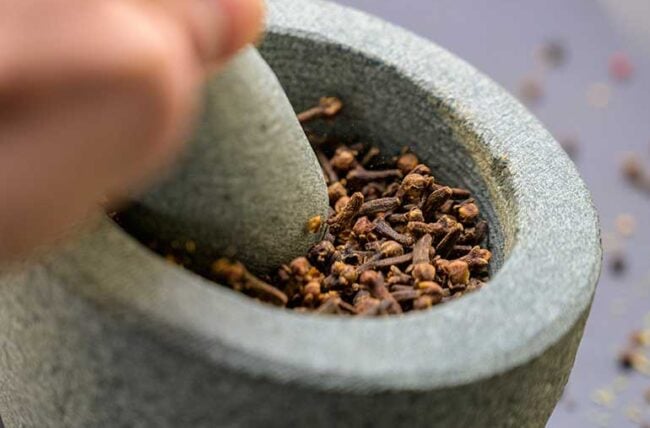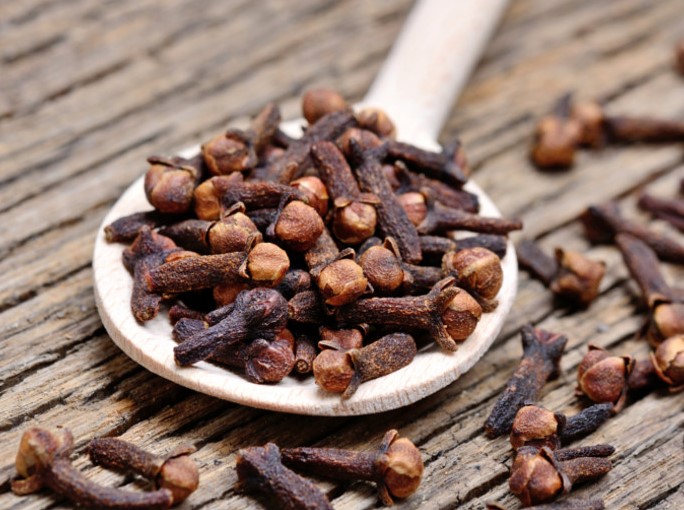Cloves, those small flower buds that come from a tropical evergreen tree, are often overlooked when it comes to stocking up your spice rack. However, these little powerhouses are packed with numerous health benefits that are worth exploring. From their fiber content to their ability to regulate blood sugar levels, cloves have a lot to offer. In this comprehensive guide, we will delve into the top 10 health benefits of cloves, explore the nutritional value they bring, discuss any potential risks, and provide creative ways to incorporate cloves into your daily life.

1. Cloves are Packed with Fiber
When it comes to promoting digestion and regularity, fiber is your best friend. And guess what? Cloves are surprisingly rich in fiber. According to dietitian Amy Gorin, RDN, “One teaspoon of cloves provides close to a gram of fiber.” So, next time you’re looking to boost your fiber intake, don’t forget to reach for the cloves.
2. Cloves can Help Regulate Blood Sugar Levels
If you’re struggling to keep your blood sugar levels in check, cloves might be just what you need. Gorin explains that cloves contain manganese, a mineral that can help regulate blood sugar levels. Adding a pinch or two of cloves to your cooking can have a positive impact on your blood sugar control.
3. Cloves have Antibacterial Properties
Maintaining good oral hygiene is essential, and cloves can lend a helping hand in this area. Clove oil has been found to have antibacterial properties, making it an excellent addition to your oral care routine. According to Gorin, one study found that a mouth rinse containing clove, basil, and tea tree oil helped fight plaque and bacteria in the mouth.
4. Cloves can Help Alleviate Tooth Pain
Dealing with toothaches can be incredibly uncomfortable, but cloves can offer relief. Thanks to their pain-relieving compounds like eugenol, cloves can be used as an essential oil for toothaches. Research has shown that clove oil can help relieve tooth pain caused by conditions like dry socket.
5. Cloves have Anti-inflammatory Properties
Inflammation is at the root of many health issues, and cloves have anti-inflammatory properties that can help combat it. Studies have indicated that eugenol, the active compound in cloves, can reduce the body’s inflammatory response. Whether you use clove oil as a lotion or add cloves to your tea, you can harness their anti-inflammatory benefits.
6. Cloves can Help Protect Against Aging

If you’re looking for a natural way to slow down the aging process, cloves might be the answer. Cloves are rich in antioxidants, which can protect your body against the signs of aging. According to Serena Poon, a celebrity chef and nutritionist, the antioxidants in cloves contribute to longevity and vitality. Consider adding cloves to your smoothies, rice dishes, or desserts to boost your daily antioxidant consumption.
7. Cloves can be used as a Cough Suppressant
When a cough strikes, reaching for cloves might be a wise choice. In Ayurvedic medicine, cloves are used to suppress coughs by relaxing the throat muscles. Chewing on cloves directly or brewing them into a tea can help alleviate cough symptoms. For added benefits, consider adding manuka honey, known for its antibacterial and antiviral properties, to your clove tea.
8. Cloves can Work as an Insect Repellent
If insects seem to be drawn to you, cloves can come to the rescue. The scent of cloves is known to deter insects like mosquitoes, ants, and wasps. Research has found that a compound in cloves called eugenol is effective in killing insects and larvae. Consider using a spray bottle of diluted clove oil as a natural pest control solution for your home.
9. Cloves may Support Skin Health
Clove oil can do more than just spice up your dishes—it can also benefit your skin. Topical applications of clove oil have shown promise in relieving inflammation and treating acne caused by bacteria. Before applying clove oil to your skin, it’s important to do a patch test to ensure you don’t have any adverse reactions.

10. Cloves can Help Soothe Digestive Discomfort
In Ayurvedic medicine, cloves have long been used to ease digestive problems. They are believed to relax the stomach lining, providing relief from nausea, gas, and vomiting. For a soothing herbal remedy, consider brewing a tea with cloves and ginger. Sip and enjoy the digestive benefits.
The Nutritional Value of Cloves
Beyond their health benefits, cloves also offer nutritional value. Just one tablespoon of ground cloves contains approximately 18 calories, 4 grams of carbohydrates, 2.2 grams of fiber, 0.15 grams of sugar, 0.4 grams of protein, and 1.3 grams of fat. Cloves are also a good source of calcium, vitamin K, manganese, vitamin E, vitamin B6, and folate.
Risks and Side Effects of Cloves
While cloves offer a multitude of benefits, it’s important to exercise moderation. Consuming high amounts of cloves at once may have adverse effects. It’s advisable to consult with a healthcare professional before incorporating large amounts of cloves into your diet. Children, pregnant or breastfeeding women should avoid consuming clove oil or medicinal doses of cloves, as they may cause seizures, liver damage, or fluid imbalances. Clove oil, containing eugenol, may also slow blood clotting, so it’s best to avoid it at least two weeks before surgery or if you have bleeding disorders. Additionally, certain medications may interact with cloves, so it’s important to speak with your doctor before adding a high amount of cloves to your diet.
Creative Ways to Use Cloves
Now that you’re aware of the incredible benefits of cloves, you might be wondering how to incorporate them into your daily life. Here are some creative ideas to get you started:
-
- Add cloves to your tea: Enhance the flavor and reap the benefits of cloves by adding them to your tea. The warming and purifying nature of cloves make them a perfect addition to your daily cup of tea.
- Use cloves as a natural cleaner: Harness the antibacterial properties of cloves by using them as a natural cleaner. Mix a few drops of clove essential oil with water and your favorite DIY cleaning products for a natural and effective disinfectant.
- Add cloves to your smoothies: Give your smoothies a flavor boost by adding cloves. Consider creating a pumpkin smoothie recipe that incorporates ground cloves and other anti-inflammatory spices like nutmeg.
- Use cloves as an air freshener: Create a fragrant and comforting atmosphere in your home by making stovetop potpourri with cloves. Combine cloves with cinnamon sticks and a splash of vanilla for a delightful aroma.
- Use cloves in your baked goods: Amp up the cozy vibes in your baked goods by adding cloves to your recipes. Muffins infused with the warm spiciness of cloves are sure to be a hit.
- Use cloves for your zobo drink: Cloves, also known as “Kanumfari” in Hausa, are one of the dry ingredients required to make Zobo. They are used by zobo makers because of the aroma and flavour they provide to the drink.
- Dress up desserts with clove syrup: Make your desserts more exciting by using clove syrup. Simmer water with sugar and other spices to create a syrup that can be drizzled over ice cream, desserts, or even cocktails.
Conclusion
Cloves are more than just a spice in your pantry—they offer a wide range of health benefits. From their fiber content to their anti-inflammatory and antibacterial properties, cloves can support digestion, regulate blood sugar levels, alleviate tooth pain, and even protect against aging. However, it’s important to exercise moderation and consult with a healthcare professional if you have any concerns or medical conditions. Get creative with cloves by incorporating them into your teas, baked goods, cleaning routine, and more. Embrace the power of cloves and enjoy the numerous benefits they have to offer.
Remember, the key to reaping the benefits of cloves is consistency and moderation. So, go ahead and explore the wonderful world of cloves while keeping your health and wellness in mind.
Note: The information provided in this article is based on scientific research and expert opinions. It is not intended to be a substitute for professional medical advice, diagnosis, or treatment.







